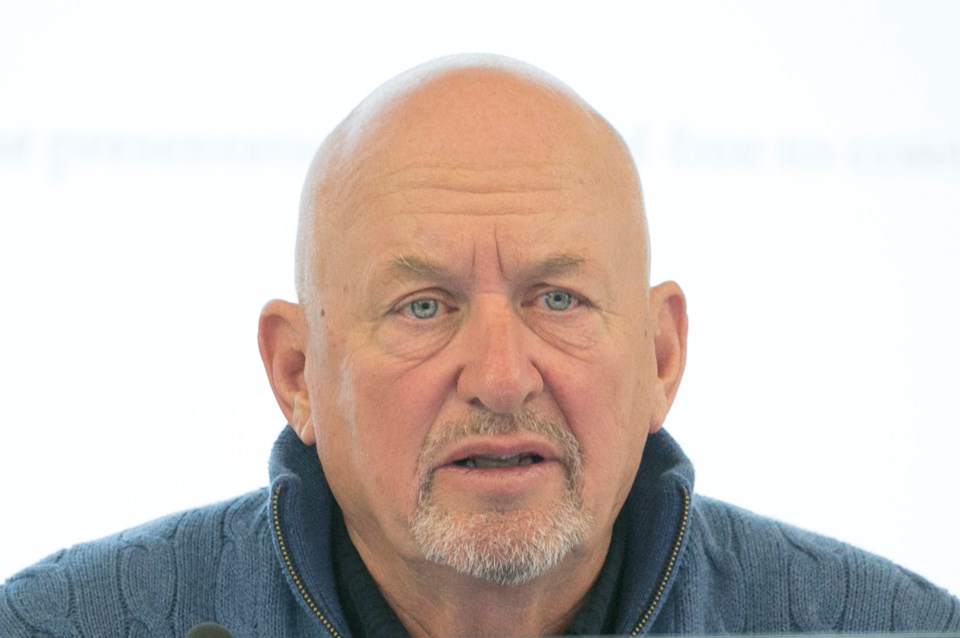MOUNTAIN VIEW COUNTY - Cuts to municipal infrastructure project funding over the next three years, announced in the new provincial budget last week, are certainly a concern, says Reeve Bruce Beattie.
In its budget tabled last week, the Kenney UCP government announced it will be reducing Municipal Sustainability Initiative (MSI) funding for local infrastructure projects by roughly 25 per cent over the next three years.
Capital grant funding for municipalities will increase in 2021 as part of the pandemic recovery effort, with the province handing out a total of $1.9 billion. However, that funding drops to $485 million in both 2022 and 2023, down from the expected $860 million.
In releasing the budget, Finance Minister Travis Toews said, “The additional funding for municipalities provided due to COVID-19 and the economic downturn requires the province to reduce average funding over the next few years, to ensure that government can continue to provide significant infrastructure support to municipalities over the long term.”
On top of unpaid property taxes owed by oil and gas companies ($840,000 in 2021), the reduction in MSI funding will create challenges for Mountain View County, said Beattie.
The county will receive $5.4 million in MSI funding this year, with markedly less in 2022 and 2023, he said.
“It is certainly a big impact on our budget,” said Beattie. “It’s a big issue and when you couple it with the unpaid tax issue, it’s one on top of the other.
“It will really start to impact what we can do with our budget and service levels. We are really going to have to look at our service levels. These are significant issues.”
Didsbury
Didsbury mayor Rhonda Hunter said the municipality plans to look at its infrastructure plans in light of the new budget.
“These are extremely challenging times, and there is no magic bullet that will instantly fix the impacts of this pandemic on our economy and the financial needs of and support for so many in our province,” said Hunter.
“I appreciate that the 2021 provincial budget has identified what we can expect for the next three years in MSI funding. It is good news that our 2021/22 MSI funding will increase, and we will look at our multi-year capital plan and make a decision as to what, if anything, needs to be adjusted with future years’ MSI cuts.
“We will take this funding information, as we always have, and continue to look after our infrastructure. We will also continue to support AUMA (Alberta Urban Municipalities Association) in efforts towards achieving a sustainable and predictable MSI funding model.”
Carstairs
Carstairs mayor Lance Colby says the MSI cuts were anticipated and town council planned accordingly.
“We had talked about it so we were expecting it,” said Colby. “We knew there was going to be some cut on the MSI so we planned for that and we were pretty careful with what we were doing when we were budgeting.
“We didn’t rush in and make any big plans, so we are pretty well set. Anyone who wasn’t expecting it should have been.”
The municipality will have funding to move forward with its plans, he said.
“We’ve pretty well confirmed what we are going to do,” he said. “We are going to pave all of our 10th Avenue just past Grey Street all the way to Idaho. We really haven’t cut back on anything we planned on doing.”
Barry Morishita is the president of the Alberta Urban Municipalities Association, which represents towns and cities.
“Over the long term, municipalities require stable and predictable funding to ensure economic growth and recovery,” said Morishita. “The changes to MSI and the LGFF (Local Government Fiscal Framework) are another example of the province changing its plan and going back on campaign promises, which forces municipal leaders to go back to the drawing board for how they will take care of their community infrastructure.”
Paul McLauchlin is president of the Rural Municipalities of Alberta.
“This reduction, combined with the $245 million unpaid oil and gas property tax burden that rural municipalities are currently facing, has left RMA concerned that some municipalities will not be able to maintain infrastructure and provide services at the level required by industry and rural residents,” said McLauchlin.



